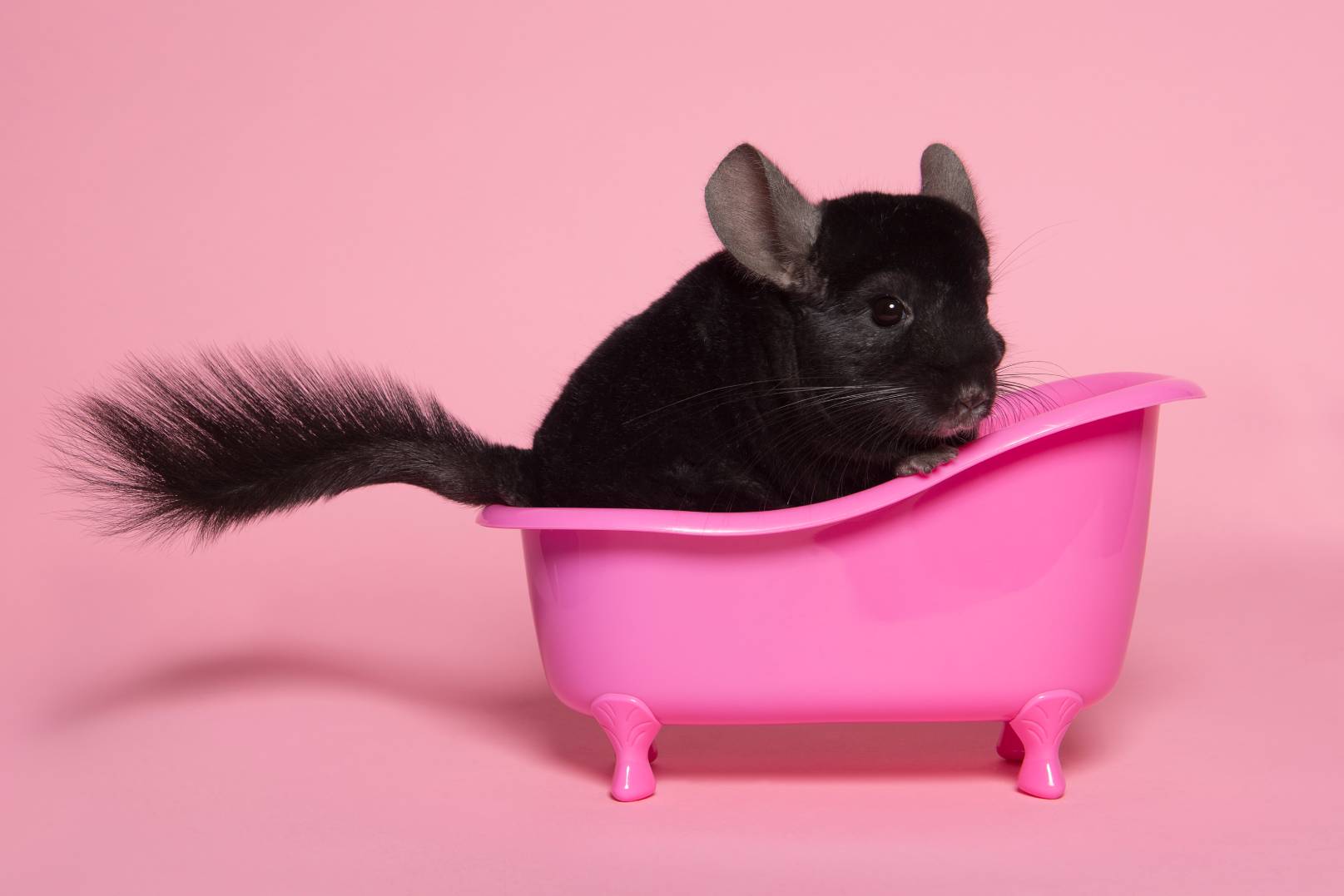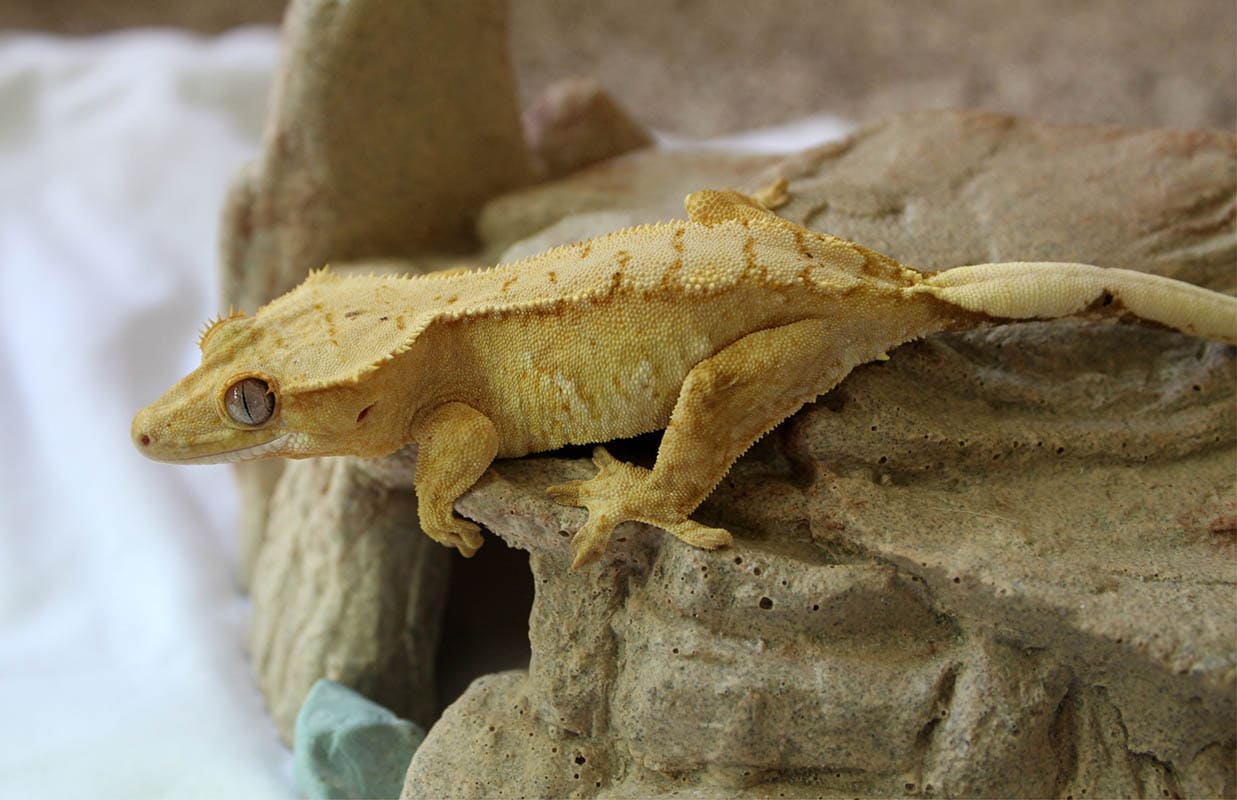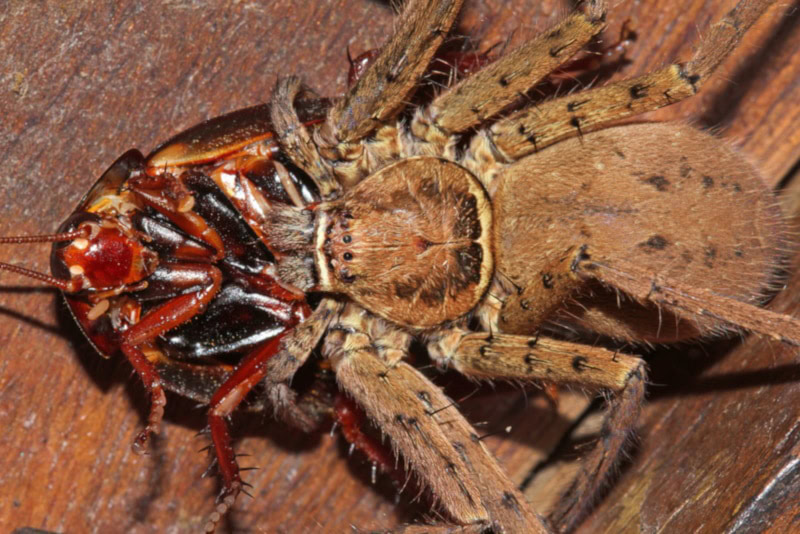VET APPROVED

The information is current and up-to-date in accordance with the latest veterinarian research.
Learn more »Click to Skip Ahead
Exotic animals are a bit trickier to care for because they have a very specific set of demands that must be met. Chinchilla owners especially need to know more than just how much to feed and water them. One concern that often arises is how they should bathe their chinchillas. Can chinchillas get wet with all that thick fur? While it is certainly possible for them to get wet, you should avoid getting your chinchilla wet whenever possible.
Chinchillas are a type of rodent that comes from the Andes Mountains located in South America. These animals tolerate cooler temperatures, and they are highly sensitive to heat. Most animals prefer to cool down by sitting in a body of water, but not chinchillas. Instead, these animals take dust baths to stay cool and clean.

Why Do Chinchillas Take Dust Baths?
These fluffy rodents secrete a lot of oils from their skin. They often roll around in the dust to keep their dense fur from becoming too oily and matting. Chinchillas have the densest fur of all land mammals, exceeding 20,000 hairs per square inch. The coat of a chinchilla is both fine and dense, making it the perfect place for excess moisture to get trapped. The dust absorbs most of the moisture to keep their skin from getting infected.
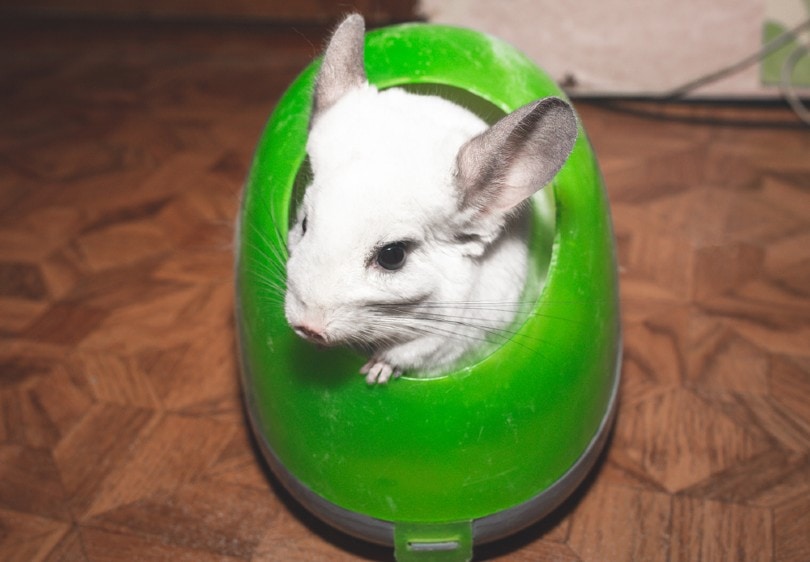
Why Can’t Chinchillas Get Wet?
Why are chinchillas instinctively rolling around in dust all the time? Giving chinchillas a water bath is not a good idea. The fur is so dense that the water gets trapped for a long time without ever drying out. Over time, fungi can start to grow and multiply to the point that it causes a skin infection. If left untreated, chinchillas act out by chewing their fur out or fur-slipping and releasing many large chunks of hair.
On top of getting infections, their wet fur makes them too cold and sometimes leads to a respiratory infection. It can also cause hair loss, itching, and crusty skin.
Do Chinchillas Like Water?
It’s not that chinchillas don’t like water; it’s that they don’t like water baths. Living in the Andes Mountains means they are in a rocky, arid climate. Too much heat or moisture is only going to create problems for these animals. They’ve adapted to surviving in colder environments and, therefore, don’t like being wet, as it impairs their ability to keep warm.
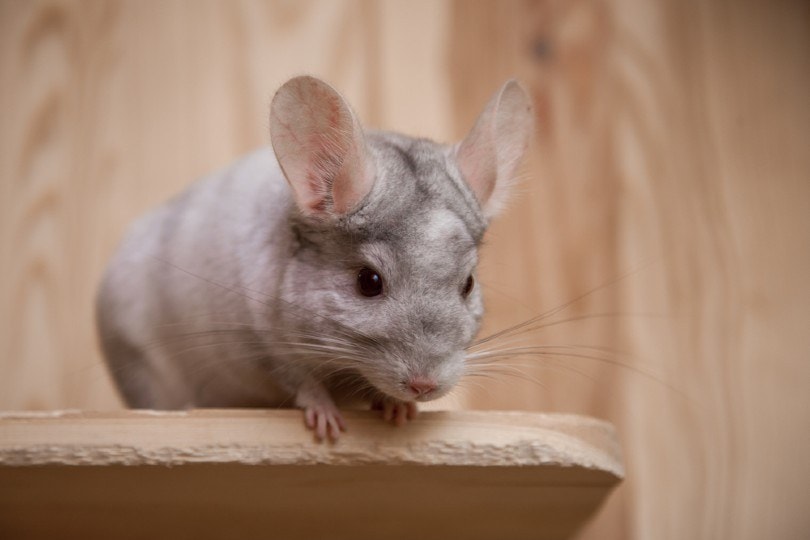
What to Do if You Get a Chinchilla Wet
A few drops of water aren’t going to do much damage to your chinchilla’s fur or skin. Still, you should avoid soaking their fur whenever possible. The only time it is acceptable to bathe a chinchilla is in emergency situations where they are covered in cleaners, oils, urine, or other harmful products that require you to rinse them. Even then, it is best to consult a veterinarian and have them spot-clean your pet for you.
If your pet chinchilla gets wet on accident, do your best to gently towel dry them. Once you’ve removed most of the moisture, place them on a new dry towel and use a fan or hairdryer (without heat) to allow the fur to dry. Make sure you are using constant and cool airflow. Drying your chinchilla could take a long time. After you believe you have removed almost all the water, allow them to take a dust bath and remove as much of the extra moisture on their skin as possible.

Conclusion
We often buy chinchillas because of their amazingly soft fur, but those who already own or plan to own one should take their grooming care as seriously as they take anything else. Bathing your chinchillas in water could lead to serious health problems and potentially make others around you sick. Try to keep these little critters dry and their skin and fur will be as healthy as possible.
See also:
- How High Can Chinchillas Jump? Vet-Reviewed Facts & Info
- How Often Do Chinchillas Need Dust Baths? Vet-Approved Care Tips
Featured Image Credit: MirasWonderland, Shutterstock
